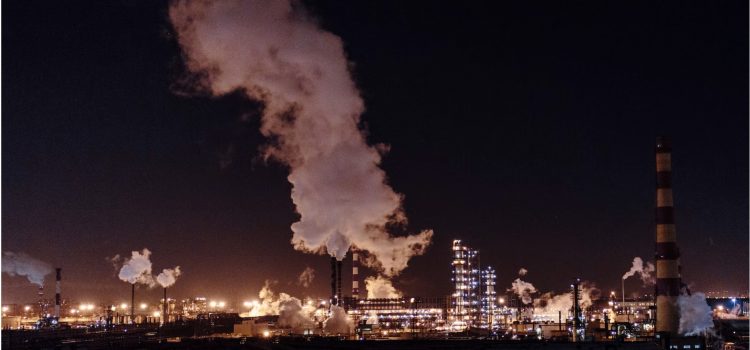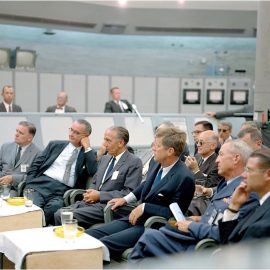
This is a free excerpt from one of Shortform’s Articles. We give you all the important information you need to know about current events and more.
Don't miss out on the whole story. Sign up for a free trial here .
How does climate change affect business? What are the dangers of extreme weather? How are businesses responding?
Many businesses are committing to sustainability policies to help delay the climate change problem. These policies range from serious emission-reduction programs to headline-seeking PR stunts, but some are too little, too late.
Read on to learn how business and climate change are connected, including how corporations are responding.
How Climate Change Affects Business
Business and climate change are more connected than you may expect. As the world fries, burns, and floods, corporate executives are facing the fact that in the coming years, extreme weather will pose significant challenges to their businesses. We’ll look at some specific ways environmental changes will threaten the economy and how companies are preparing.
Threats of Climate Change
Extreme weather events are not the only environmental challenges threatening economic output—the ongoing rise in temperature itself has measurable consequences on climate change and business:
- In hot weather, worker productivity decreases, not only in industries that involve outdoor work like construction, but also in indoor industries like retail, hospitality, and finance.
- High heat decreases crop yields, pushing up prices of everything from grocery staples to clothing made with cotton.
- Energy use skyrockets as people and businesses use more air conditioning and other cooling equipment. This not only increases utility bills but also increases the frequency of blackouts, which can spoil food and force businesses to either operate generators or shut down. (The California blackouts of 2019 cost businesses and households an estimated $10 billion.)
What the Models Got Wrong
Some scientists believe our current climate change models underestimated how the planet’s warming would impact the jet stream, which contributes to heat waves, droughts, and flooding. Here’s how it works:
- The jet stream is a strong air current that pushes weather systems in its path. Greater temperature differences between warm tropical air and cool polar air makes the jet stream faster and more powerful.
- However, the Arctic is warming much faster than the rest of the globe, quickly shrinking that temperature gap and slowing the jet stream.
- As a result, a weather system sits pummeling the same region for longer periods before getting pushed along.
Additionally, warmer air holds more moisture. As Earth’s temperatures rise and the air absorbs more water vapor, it acts as a greenhouse gas, trapping even more heat in a vicious cycle. The water-saturated air also causes heavier rainfall and precipitation, which is why Zhengzhou, China had a year’s worth of rainfall in one day last year—breaking records going back 5,000 years. So, how are businesses responding, and can the effects of climate change be controlled?
Business Responses to Climate Change
Businesses waking up to the dangers of climate change are developing environmental policies in the hopes of staving off the worst of the effects.
- In 2019, Amazon spearheaded a Climate Pledge that encouraged signatories to aim for net-zero carbon emissions by 2040.
- In 2020, a collection of investment banks and pension funds asked the Federal Reserve to protect financial markets by treating climate change as a systemic risk, requiring companies to adopt policies and disclose threats related to it.
- Many individual companies have developed emissions-reduction plans: Apple aims to be carbon neutral by 2030, GM announced it will sell only zero-emissions vehicles by 2035, and Microsoft pledges to have removed the equivalent of its historical emissions through carbon removal projects by 2050.
Unfortunately, while some of these policies might be impactful, other business responses to climate change appear to be empty and merely focus on public relation improvement.
- Amazon’s pledge, which was signed by over 100 companies including IBM, Unilever, JetBlue, and Verizon, is notable for its lack of substance, concrete plans, or penalties, and has been called a “branding exercise.” Amazon’s own carbon emissions rose by 19% in 2020.
- Many companies that prominently tout sustainability goals lack plans to achieve them. Despite some success, Google has struggled to significantly reduce the carbon emissions of its power-hungry data centers, and Costco and Netflix advertise their commitment to reducing emissions but haven’t provided any specific targets.
- Some critics allege that voluntary climate pledges are more about getting ahead of governmental regulation than about sincere concern for the environment.
Instead of trying to prevent weather changes, most businesses should instead prepare for them. Build redundancy into your supply chains and inventories, assess flood and fire risks for your facilities, and invest in on-site power generators like solar panels.

Want to fast-track your learning? With Shortform, you’ll gain insights you won't find anywhere else .
Here's what you’ll get when you sign up for Shortform :
- Complicated ideas explained in simple and concise ways
- Smart analysis that connects what you’re reading to other key concepts
- Writing with zero fluff because we know how important your time is






